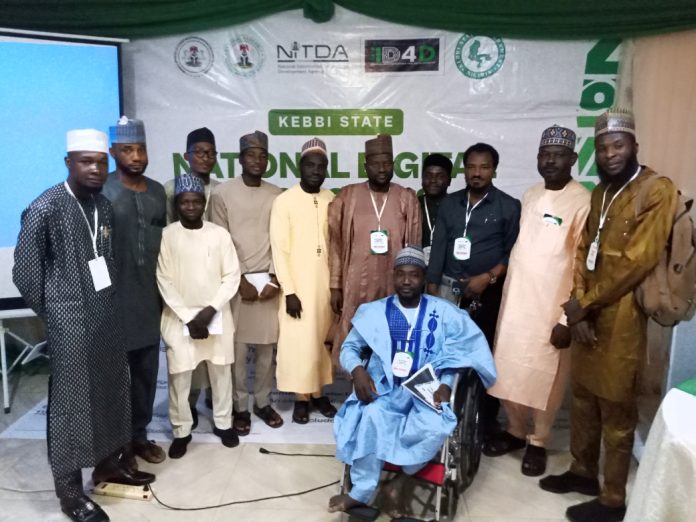On November 26, 2024, Anas Malawi Gwandu, Chairman of the Kebbi State Commission for Persons with Disabilities, joined a diverse group of stakeholders for an engagement session on the draft National Digital Economy and E-Governance Bill in Kebbi State. The event served as a critical forum for shaping Nigeria’s digital transformation agenda while advocating for the inclusion of persons with disabilities (PWDs).
The stakeholders’ engagement highlighted the importance of creating a digital future that is not only innovative but also inclusive, accessible, and equitable. For PWDs in Kebbi State and across Nigeria, this bill represents an opportunity to break down longstanding barriers to accessing government services and participating fully in civic life.
The Call for Inclusive Digital Governance
During the discussions, Gwandu voiced a compelling call for the active inclusion of PWDs in every aspect of the digital economy. He emphasized that while provisions for accessibility are crucial, they are not enough if PWDs are merely treated as beneficiaries rather than active participants.
“PWDs must not only benefit from these policies but also play a central role in monitoring and implementing them,” Gwandu said. “Decisions under this framework must reflect the voices, needs, and lived experiences of persons with disabilities across Nigeria.”
Gwandu’s advocacy was met with a positive response, as stakeholders acknowledged the need to embed inclusivity into the DNA of Nigeria’s digital governance. Proposals were made to ensure that e-governance platforms and digital initiatives are fully accessible to all persons with disabilities.
Transforming Accessibility Through Technology
One of the most critical aspects of the deliberations was the emphasis on accessibility as a cornerstone of the digital economy. Stakeholders agreed that inclusivity must be built into the foundation of all e-governance initiatives, with particular attention to:
- Designing accessible websites and applications.
- Providing assistive technologies for individuals with diverse disabilities.
- Ensuring digital platforms comply with global accessibility standards.
“If implemented effectively, these provisions will revolutionize how PWDs interact with government services, breaking down barriers to participation in governance and society,” Gwandu remarked.
Inclusion Beyond Accessibility
The engagement also underscored the importance of involving PWDs in decision-making processes. By leveraging the expertise and lived experiences of individuals with disabilities, stakeholders can identify gaps in current policies and propose solutions that work for everyone.
“PWDs bring valuable insights to the table,” Gwandu noted. “Their involvement will ensure that digital governance initiatives are not just inclusive on paper but impactful in practice.”
A Collective Call to Action
As Kebbi State takes steps to align with the broader national framework, Gwandu called on policymakers, civil society organizations, and other stakeholders to uphold the principles of inclusion. He urged them to collaborate and commit to building a system where accessibility is not an afterthought but a priority.
“We have a shared responsibility to create a society where every citizen, regardless of ability, can thrive,” he said. “This journey toward an inclusive digital economy is just beginning, and we must stay steadfast in our commitment.”
A Vision for the Future
The National Digital Economy and E-Governance Bill has the potential to redefine Nigeria’s digital landscape, making it a tool for empowerment rather than exclusion. For PWDs in Kebbi State and beyond, the hope is that this bill will pave the way for meaningful inclusion and equal opportunities in the digital age.
As the engagement concluded, the atmosphere was one of optimism and determination. The voices of PWDs, amplified through advocates like Anas Malawi Gwandu, have set the stage for a future where digital governance serves all Nigerians equitably.
The road ahead may be long, but with collaboration and commitment, the vision of an inclusive digital economy is within reach.


